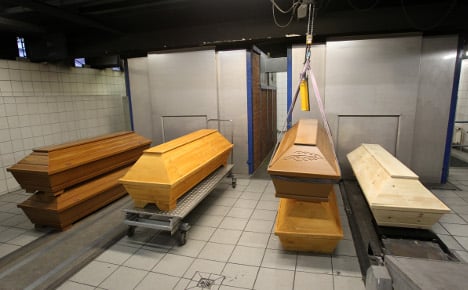P { margin-bottom: 0.08in; }
Hamburg cemeteries brought a case against the man in the Erfurt federal labour court for damages of over €250,000.
Based on the average price of gold over the time period, his haul may have been worth more than twice as much over the years.
But the judge found that while he had been convicted of disturbing the dead in June, it was not clear that the items he removed belonged to the crematorium.
Working with accomplices, including his wife, who has since died, the man sifted gold and other precious metals from the ashes of the dead and sold them on.
He has since spent the all the money he earned through the dealings, the court heard.
The thefts continued despite his being warned in writing by his employer not to remove valuables from the remains in 2005, but it took a further six years for him to finally be fired.
At issue in the case was the legal question of whether the valuables implanted in the deceased become 'unowned' after death and no longer belong to anybody.
While the former employee argued that this was the case, the Hamburg cemeteries authority believed that only it should have been allowed to keep and sell the precious metals.
The court has now confirmed that crematoria are within their rights to sell on the material, while noting that that does not imply they are the rightful owners. The deceased's loved ones might also have a claim to the proceeds.
Such remains are an important source of revenue for local authorities across Germany, sometimes bringing in a revenue stream of hundreds of thousands of euros per year.
The money is usually used for social purposes but is sometimes simply added to municipal budgets.
Because of the legal grey area over ownership, the man was not charged with theft. He was already found guilty in an earlier trial for disturbing the remains of the dead and breach of custody of the remains. A suspended jail sentence was handed down at the time.




 Please whitelist us to continue reading.
Please whitelist us to continue reading.
Member comments